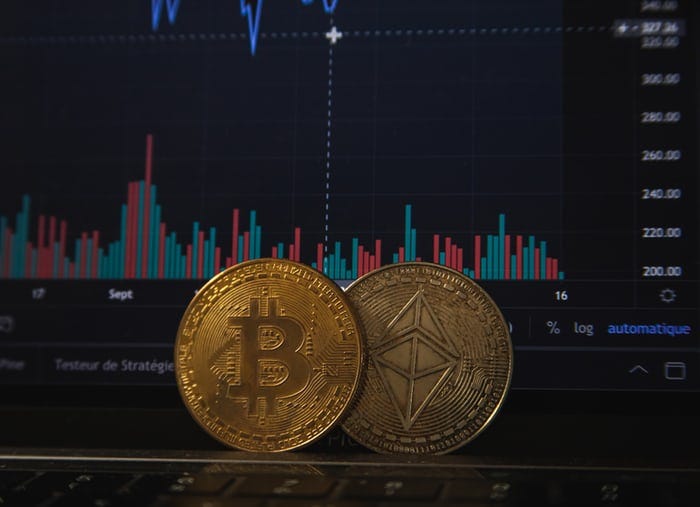Pre the 20th century, investing was only reserved for the Wall Street preppy dudes who worked in finance. Those who had 6 wives, never saw their family and were the sole bread winners. Finally as we’ve innovated as a society, bridged a gap between Main and Wall Street, broke the gender gap in the most male dominated field and democratized finance for all, more problems inevitably have come about. A little late, but hey, at least they’re adopted.
Yet in 2021 there seems to be no regulation or boundaries set as the ‘messiahs of momentum’ who include billionaires from Elon Musk to Mark Cuban and social media Reddit gangs now direct where markets are headed, instead of math. This is dangerous practice because the stock market isn’t a game or Vegas. It’s a place where every day people want to see their money grow through goal setting investing in profitable companies not GameStop or Blackberry, two extinct business models that revived for no reason last month.
With wealth comes responsibility and Musk has took away his own right Tweeting all he wants from buying a wool sweater on Etsy to including #bitcoin in his hardline on Twitter skyrocketing the stocks to levels that are purely unrealistic and make no sense.
How the stock market works now isn’t based on fundamental analysis, earnings calls or investor sit downs with intensive research and modeling. If Musk tweets, millions buy with a dangerous cult like following.
But if I had to agree. I would rather follow a SpaceX genius on Twitter than an old grouchy investor on CraigsList. It’s not about who’s smarter anymore, it’s who has the most power to control everything which is the dangerous part.

Money For All
At the start of the pandemic, Robinhood saw its daily user-ship skyrocket to roughly 2 million, more than they’ve ever seen in their whole 7 year history as a company. When people were locked inside wanting to make as much money as possible, Robinhood with it’s enticing free trade commissions started calling. This lead mostly GenZers and Millennials, who make up the bulk of retail investors who use WeBull and Robinhood to believe that if they trade, they are not only learning about money and the stock market to propel their future careers, they are becoming better investors. Long story short, you cannot become a better investor without financial literacy and as a result, these shenanigans lead them to loose big.
Electronic money can be dangerous because there’s no phsical sense of it. Just like when you purchase something with a credit card versus cash, you’re more likely to spend more because you aren’t physically touching money. You can spend over your limit on a card and the bank will praise you. These retail gullible bored investors are lured into spending more and making the stock market seem like an addiction gamble until it becomes too late.
There has even been an instance where a teen committed suicide because he went into debt over a trade cast on Robinhood and couldn’t comprehend he lost that much.
Freeing finance has never been more risky.
So how can we make investing for all without letting bored kids die and go into debt for trying to learn and make money?
Without some barrier to entry or a quiz to pass before investing, who knows how badly unprofitable stocks will be turned around and lead to volatility causing even the 1% to get angry. It doesn’t just hurt the individual investor when nonsense trades are placed, it hurts the whole investing community with trillions of dollars pooled into the stock market.
It used to be that Wall Street insiders the analysts, economists, investment strategies, and portfolio managers would fuel the bull markets and cast their predictions on what are the best buys, now it’s the outsiders that can Tweet and fire up millions of traders for no apparent reason besides having FOMO.

Luck Or An Experienced Trader?
Wall Street analysts and fund managers have always claimed to base their predictions on original research and fundamental analysis. Yet those have seldom been better than educated guesses. As a result, according to the Wall Street Journal, “over the decades, has been billions of dollars in overcompensation for trillions of dollars in underperformance.”
So what does this mean?
This calls for the case of the monkeys.
Give a monkey a few darts and they will beat the market for you. No analysis or experience involved, just luck. Monkeys = retail traders.
According to Research Affiliates experiment, 100 monkeys threw darts at the stock pages in a newspaper. The average monkey outperformed the index by an average of 1.7% per year since 1964.
This proves that the stock market is unpredictable and another reason it is available for everyone but also dangerous.
As an experiment on humans, analysts were randomly selected 100 portfolios containing 30 stocks from 1k stock universe. They repeated this process ever year from 1964 till 2010 and tracked the results.
he process replicated 100 monkeys throwing darts at the stock pages each year. Amazingly, on average, 98 of the 100 monkey portfolios beat the 1,000 stock capitalization weighted stock universe each year.
This is bananas! How do dumb but cute monkeys do it?
There’s no trick. It’s all about smaller company stocks and value stocks outperforming the market over the period. Investors are focused too heavily on the popularized universes, blue chips and FAANGs that they are missing out on huge gains with value stocks which you can read about here.
According to Forbes,
“From 1964 to 2011, the annualized return for the 1,000 stocks used by Research Affiliates was 9.7 percent. The 30 largest companies in the 1000 made up about 40 percent of the capitalization weight, but their return was only 8.6 percent annually. The other 970 stocks made up 60 percent by capitalization weight and their return was 10.5 percent annually. That’s a 0.8 percent per year premium return for smaller stocks over the 1,000 stock universe and a 1.9 percent premium return over the largest stocks.”
Any portfolio of 30 stocks that randomly selected from a list of 1k stocks is likely to include a smaller undervalued growth stock. Monkeys chose randomly but didn’t follow the crowd.
This is strange because this is what day traders should avoid. Picking stocks out of emotion, not following the crowd and pretending you have special tricks going against everyone will yield immense losses yet for monkeys it works.

Is This Bananas?
Ultimately, there’s no such thing as free lunch on Wall Street. You don’t need furry friends to pick stocks for you or a roboadvisor. All an index fund portfolio in a variety of asset classes that is diversified following a respectable allocation of passive vs active investments along with a nice divide between growth and dividend stocks will yield better results and a higher probably of outperforming most profits that are trying to beat the market.
Having an open mind in any situation from finance to career prospects is crucial to becoming the best version of yourself and in monetary terms, crushing your wallet.
Understanding and evaluating portfolio metrics will put you on the best track. Let your furry friends play another game.
Beta: Co-movement of all stocks in general
Size: Size of companies in a portfolio relative to the market
Value: Compares the amount of value stocks to growth stocks
Too Open?
Since we’ve analyzed that our furry friends can do the same work we do just with a little less thinking, how about the retail investors that currently take up 20% of daily trading volume?
Today’s outsiders (retail investors) are signaling to everyday investors what should have been obvious for a long time. “The internet has democratized information,” Mr. Palihapitiya told WSJ. “So the edge has shifted to analysis. Everyone has access to the same information, financial disclosures and general data.” But if finding small cap valuable stocks is so hard, why isn’t anyone doing it right?
We follow no reasoning. Understanding the metrics and implementing them into your trades is the best way to go to actually achieve long term growth not short term blasts and debt.
This erases Wall Street’s illusion of superior knowledge. You don’t need any additional fancy tools, you need a basis of literature to understand what you are doing. The internet is your oyster. You can become a wealthy stock picker if you make the markets less fun and more goal oriented.
With the epic rush into unprofitable shares and the rise of WallStreetBets trading forum with the boom in cryptocurrencies and precious metals, as Mr. Cuban states, “shows small investors that if they group together, aggregated capital and targeted actions can be very powerful.” He added, “That is a vacuum that should be filled.”

Closed Door?
The vacuum can be filled with dust through education. I write all the time that financial literacy is one of the few skills we really ned to know in life to achieve our goals and live a financially free life. Yet it isn’t taught n school because the education system has no incentive to make students rich and successful. They robe our money to fund operations and make us less prepared.
Instead of becoming victimized by this system and by social media through random trading forums, take the time to understand:
-What this money will be used for
-Why
-How long you plan to invest
-Will you be proud of the results in a few years
That’s it. There’s no special gimmicks or way of thinking besides utilizing the internet, this source as education, making strategic mistakes with ‘play money’ or on Investopedia’s stock picker game and learning from the most unexpected genius of all, our cute and furry friend the monkey.

